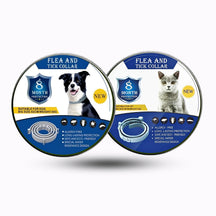Over 80% of cat parents report destructive behaviors like scratching doors, knocking things off shelves, or excessive hiding and meowing. What may seem like "typical cat antics" is often a signal of boredom, stress, or unmet needs.
Cats are naturally curious, instinct-driven creatures. But when their environment lacks stimulation or security, two big issues follow:
-
Destructive scratching
-
Excessive hiding or anxiety

Why Your Cat Might Be Acting Out: Key Causes and Solutions
Unusual or problematic behaviors in cats such as aggression, excessive vocalization, inappropriate urination, or destructive acts are often signs of stress, environmental changes, or unmet needs. Understanding the root causes is essential for improving your cat’s welfare and your relationship.
Common Causes of Acting Out
-
Stress and Environmental Changes: Cats are sensitive to changes in their environment, such as moving, new pets, or changes in household routine. Stress can lead to behaviors like urine marking, aggression, over-grooming, and reduced appetite.
-
Separation-Related Problems (SRP): Some cats display destructive behavior, excessive vocalization, inappropriate elimination, depression, or agitation when left alone. SRP is more likely if the cat lacks toys, lives without other animals, or is in a household with more females.
-
Individual Coping Styles: Cats have different personalities and coping mechanisms. Shy or timid cats may hide or eat less, while active cats may vocalize or seek attention more.
-
Medical or Age-Related Issues: Elderly cats may act out due to cognitive decline, leading to increased vocalization (especially at night), disorientation, or attention-seeking. Pain or illness can also cause behavioral changes.
Table: Common Behaviors and Potential Causes
| Behavior | Potential Cause(s) |
|---|---|
| Aggression, urine marking | Stress, environmental change |
| Destructive acts | Separation-related problems |
| Excessive vocalization | SRP, cognitive decline, stress |
| Over-grooming | Stress, compulsive disorder |
| Hiding, reduced appetite | Stress, personality, illness |

Solutions and Management
-
Environmental Enrichment: Provide toys, scratching posts, and safe spaces to reduce stress.
-
Routine and Predictability: Maintain consistent feeding and interaction schedules.
-
Gradual Introductions: When adding new pets or making changes, introduce them slowly.
-
Veterinary Check-Up: Rule out medical issues, especially in older cats or if new behaviors appear suddenly.
-
Pheromone Products: Synthetic feline facial pheromones may help reduce stress.
The Solution: The Cat Tunnel Bed by Pet Cavern
At Pet Cavern, we designed the Donut Cat Tunnel Bed to solve these problems. It combines a plush donut-shaped bed on top with a hideaway tunnel below, offering comfort, security, and enrichment all in one.
-
Dual-purpose design: Hide, play, rest
-
Scratch-resistant felt: Durable and claw-friendly
-
Spacious & cozy: Great for single or multiple cats
-
Easy to clean: Zipper design, vacuum or hand wash

Why Cat Parents Love It
Thousands of happy customers have said goodbye to scratched-up sofas and anxious cats. Instead, they’re seeing happier, more relaxed, and better-behaved feline friends.
"Before this bed, my cat would hide all day and scratch the couch every night. Now she naps beside me in peace."
If your cat is hiding, scratching, or showing stress, listen to what they’re telling you. A more enriched, calming environment can transform your pet’s behavior. Explore the Pet Cavern Donut Cat Tunnel Bed today. Your furniture (and your cat) will thank you.







